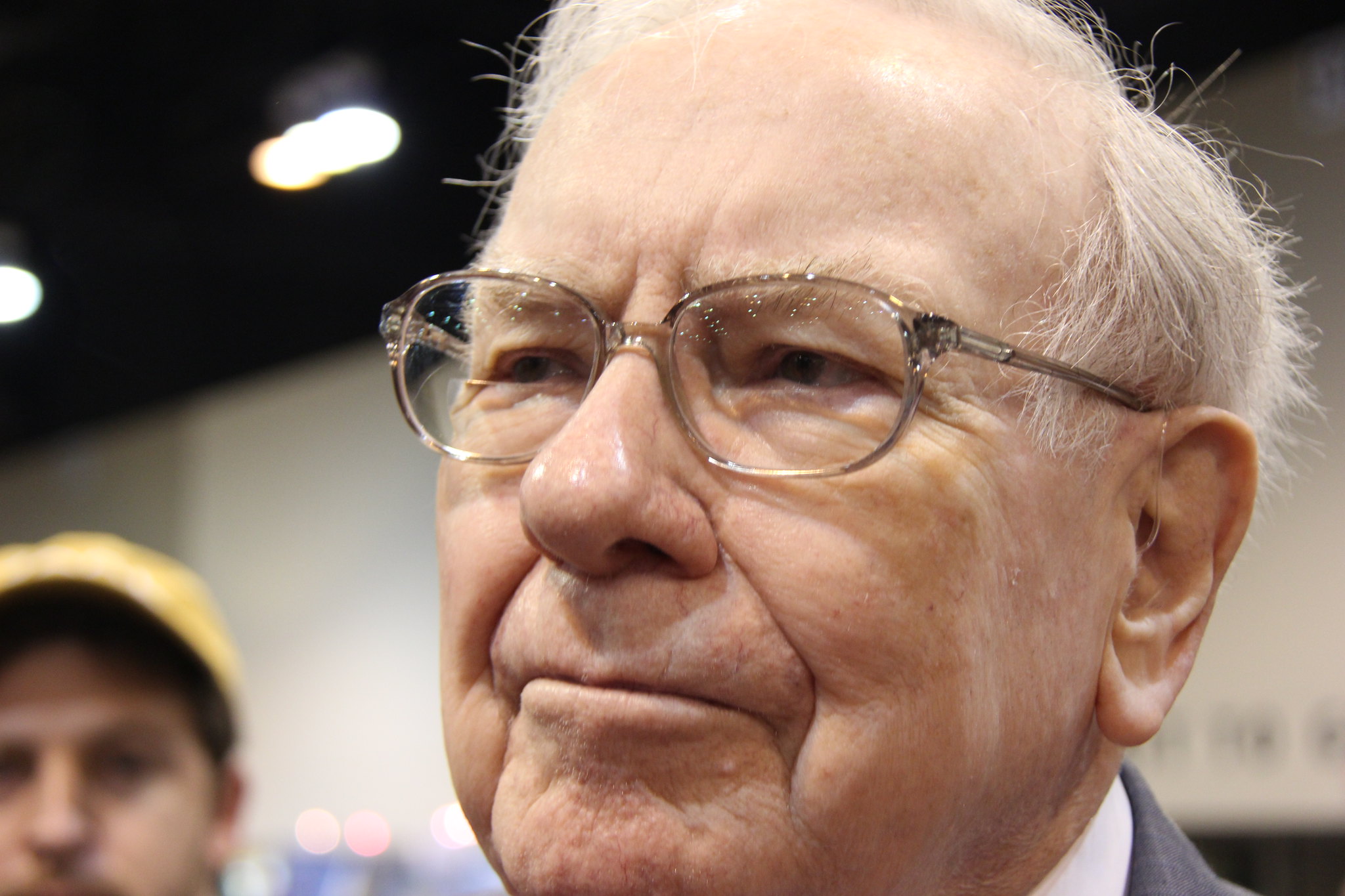It’s the end of an era for the Oracle of Omaha.
It’s been one heck of a ride for Berkshire Hathaway (BRK.A 1.99%) (BRK.B 1.76%) CEO Warren Buffett. Since taking the reins 60 years ago, he’s overseen a nearly 20% annualized return in his company’s Class A shares (BRK.A), which as of the closing bell on May 2 translates into a cumulative gain of 6,540,015%. To put this into perspective, the benchmark S&P 500 hasn’t even delivered a 39,000% aggregate return over the same timeline, including dividends!
The Oracle of Omaha’s penchant for ignoring short-term white noise and focusing on broad-stroke fundamental catalysts, as well as his unwavering-to-a-fault desire to get a good deal, has earned him a huge following on Wall Street.
But all good things must come to an end.

Berkshire Hathaway CEO Warren Buffett. Image source: The Motley Fool.
The Oracle of Omaha will soon step down as CEO
During Berkshire Hathaway’s 2025 annual shareholder meeting on Saturday, May 3, Buffett surprised the roughly 40,000 in attendance, as well as most of his company’s board, by announcing plans to step down at the end of the year. Said Buffett:
I think the time has arrived where Greg [Abel] should become the chief executive officer of the company at year-end. And I want to spring that on the directors, effectively, and give that as my recommendation.
Greg Abel, who’s been with Berkshire for more than two decades and is currently the vice chairman of non-insurance operations, has been Buffett’s known successor since 2021, which is when the Oracle of Omaha’s now-late right-hand man Charlie Munger alluded to Abel being the next in line.
Although it’ll be up to Berkshire’s board to decide who the official heir is to the 94-year-old Warren Buffett, Abel certainly checks all the boxes given his experience overseeing and evaluating complex businesses.
The big question is: What does a future without Warren Buffett look like for Berkshire Hathaway? Let’s take a closer look at what will and won’t change when Buffett steps down, as well as highlight one big change that’s already been made, but that you may not have noticed.

Image source: Getty Images.
What won’t change under Greg Abel
If there’s anything Buffett’s successor is aiming for, it’s continuity. Abel isn’t someone looking to come in and rock the boat. Rather, he’ll want to reinforce the vision and long-term ethos that Warren Buffett and Charlie Munger helped build over many decades.
For example, Abel was instrumental in facilitating Berkshire’s significant investments in Japan’s five trading houses: Mitsubishi (MSBHF -1.20%), Itochu (ITOCY -2.84%), Mitsui (MITSY -0.04%), Sumitomo (SSUM.Y -1.77%) and Marubeni (MARUY 0.66%). All five of these businesses play critical roles in Japan’s economy, and they have executive teams that receive modest compensation. Additionally, Mitsubishi, Itochu, Mitsui, Sumitomo, and Marubeni have robust capital-return programs.
These five Japanese trading houses join Coca-Cola, American Express, and Occidental Petroleum as the eight companies Warren Buffett has referred to as “indefinite” holdings for Berkshire Hathaway. It’s extremely unlikely Abel is going touch these foundational puzzle pieces.
Furthermore, Berkshire Hathaway is going to continue to benefit from its strong cyclical ties.
On more than one occasion, the Oracle of Omaha has strongly suggested investors not bet against America. Though he’s fully aware that recessions are an inevitability for the U.S. economy, just as stock market corrections are normal, healthy, and inevitable on Wall Street, Buffett astutely recognizes that economic expansions dwarf recessions in length.
A majority of Berkshire Hathaway’s owned assets (roughly five dozen acquired businesses) and many of the companies represented in its $277 billion investment portfolio have cyclical ties and will ebb-and-flow with the health of the U.S. economy. Abel isn’t going to disrupt this sustainable advantage for his company.
What will change without Warren Buffett at the helm
But a Berkshire Hathaway without Warren Buffett as CEO come 2026 will see at least some modest changes. The biggest being the final stamp of approval when it comes to acquisitions and outsized investments.
According to Buffett, he plans to “hang around” and help out where he can, and will remain Berkshire Hathaway’s non-executive chairman. Buffett has had a knack for pouncing on price dislocations during periods of panic, which he alluded to this past Saturday:
I could be helpful, I believe, in that in certain respects, if we ran into periods of great opportunity or anything.
But when it comes to deploying Berkshire Hathaway’s capital or determining which businesses are next in line to be acquired, it’s going to be Abel’s call. This means Abel will be the go-to for Buffett’s current investing lieutenants, Todd Combs and Ted Weschler, when making multibillion-dollar investments.
Something else that’ll change will be Berkshire Hathaway’s capital-return program. While Berkshire is still highly unlikely to pay a dividend, the Oracle of Omaha will no longer be the individual authorizing share repurchases.
Since July 17, 2018, which is the date Berkshire Hathaway’s board amended the rules governing buybacks, Buffett has greenlit the repurchase of almost $78 billion worth of his company’s stock and reduced the outstanding share count by more than 12% in the process. For context, Buffett has spent more buying back Berkshire stock than he did buying Apple, Bank of America, Chevron, Occidental Petroleum, Coca-Cola, and American Express at cost, combined!
Abel has previously insisted that he’ll stick to the Oracle of Omaha’s approach of deploying capital for buybacks when his company’s stock is clearly undervalued.
The big change we’re already witnessing at Berkshire Hathaway
While the remaining seven months may serve as something of a farewell tour for Berkshire’s chief after six decades of resounding outperformance in the return column, there’s already a big change underway at Berkshire Hathaway — and it’s been ongoing for years.
Throughout his many decades of investing on Wall Street, Buffett has almost always maintained a long-term focus. With few exceptions, you won’t see him taking a stake in a public company and selling it a few quarters later.
But over the past couple of years, Todd Combs and Ted Weschler have been exerting more of their influence on Berkshire’s investment portfolio — and it’s resulting in some short-term/swing investments, as well as stakes in companies that Buffett very clearly doesn’t understand or follow.
Even though it’s no longer a Berkshire holding, the multiyear investment in cloud-data warehousing company Snowflake (SNOW 1.37%) is a good example of a sizable investment that Buffett had nothing to do with. Putting aside that Snowflake has consistently traded at a sales multiple that would make the value-focused Oracle of Omaha cringe, Buffett has historically shown little interest or understanding in cloud computing and cutting-edge tech stocks.
Combs and Weschler have been stepping in for years and adding a growth element that Berkshire’s portfolio has traditionally lacked.
Buffett’s lieutenants are also far more active on the trading front. For instance, shares of McKesson were purchased and completely sold after about one year. It’s a similar story with Royalty Pharma, which was held for less than a year. This is a marked difference from Buffett’s staunch buy-and-hold strategy, and it might result in even more active trading in the future.

